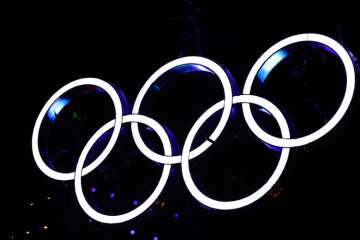India runs the risk of losing out on hosting major international sporting events in future, if the lone boxer from Kosovo will not be allowed to compete at the upcoming women's World Championships, fears the Indian Olympic Association (IOA).
The championship is beginning on Thursday but uncertainty still looms large over Donjeta Sadiku's participation at the AIBA's flagship event since the Indian government is yet to grant visas to the boxer and her two coaches.
India does not recognise Kosovo - a disputed territory in South-Eastern Europe - but since Sadiku also holds an Albanian passport, the Boxing Federation of India (BFI) was hoping for a resolution to the issue. India has diplomatic ties with Albania.
"IOC has in the past sent letters to International Federations not to award major events to Spain after athletes from Kosovo were not allowed to participate under their own flag at the Karate World Championships. And you never know it might be India next," an IOA official who did not wish to be named, told PTI.
"For IOC, sports and politics are two sides of the same coin. IOC doesn't mix sports with politics and expects its member nations to follow the same guidelines."
The IOA official said Kosovo also participated in the 2016 Rio Olympics despite the fact that Brazil too doesn't recognise the disputed country.
The BFI President Ajay Singh said they are discussing the sensitive issue with the Indian government.
"We are still talking to the Ministry of External Affairs. It is a sensitive issue, I don't want to comment much on it. We have taken up the matter," Singh said.
"It's a larger external affairs issue and it is not only an India issue. It is a global issue and there needs to be a dialogue between all sides to find a solution to this problem. This is not about boxing alone, it's a much larger issue. We have taken up with the government and lets see what happens."
Singh said the IOC needs to mediate in this matter.
"This is an issue of many countries that don't recognise Kosovo. So we have to find a solution between IOC and all these countries because this includes lot of western nations, South-East Asian nations," he said.
"From our perspective, we want to follow the IOC guidelines. But ultimately the decision to whether or not grant visas is really a sovereign issue," Singh added.
Kosovo declared independence in 2008 from Serbia, which does not recognise it as a state.
The Serbian Olympic committee protested when Kosovo was granted provisional IOC recognition in October 2014.
It is recognised as a country by 113 of the 193 United Nations member states.
Kosovo, if allowed to compete, will be one of the nine countries to make debut at the World Championships here.

